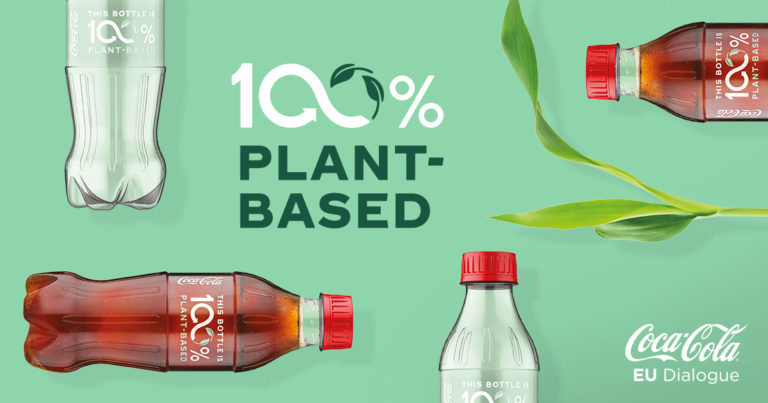In today’s world, many of us are trying to become more sustainably conscious, whether this be lifestyle changes, food choices or other major daily changes, in order to reduce the negative impacts on our planet. A major factor within this is our buying choices. As the consumer changes their daily habits to more conscious living, it is inevitable that they expect the companies they buy from to follow and uphold certified sustainable practices.
More recently, the language associated with the sustainability space has become more widely accessible on a worldwide basis due to social media platforms such as TikTok and Instagram, offering short, digestible definitions of words such as “Greenwashing”.
For those who aren’t sure, “Greenwashing is the exaggeration of a company’s environmental credentials. That is, marketing communications impress business operations to be better for the environment than they are in reality.” (Green Business Bureau)
As awareness surrounding sustainability has increased, many companies have found loopholes and taken advantage of the consumer in a way that words such as “organic” , “sustainable”, “eco-friendly” and more, have become buzzwords that many consumers will see and trust that their buying choices are sustainably conscious; however the company does not show or provide their certification or credentials to support this. The tactics of greenwashing are now becoming easier to spot and as consumers demand more transparency, a new issue has arisen, leading to Greenhushing.
So What Is “Greenhushing”?
Greenhushing refers to the practice of companies creating the impression that they are more environmentally friendly than they actually are. This can involve exaggerating the environmental benefits of a product or service, or hiding negative environmental impacts.
Why Is It A Problem?
Greenhushing can be a serious problem, as it can mislead consumers into making choices that are not actually good for the environment. It can also undermine the efforts of genuinely environmentally conscious companies, as it creates a sense of cynicism and distrust among consumers.
Greenhushing will lessen transparency and hinder climate ambition.(World Economic Forum)
Examples of Companies Greenhushing
Companies engage in greenhushing in a number of ways . A common tactic is to use vague or misleading language in advertising and marketing materials. A company may claim that a product is “all natural”, even if it contains synthetic ingredients or chemicals.
Can you add in some imagery from an ad campaign?
Another common tactic is to focus on small, insignificant environmental benefits, while ignoring larger and more significant negative impacts. To illustrate, a company may parade the fact that its product is made with recycled materials, while ignoring the fact that it is transported long distances and packaged in non-recyclable materials. This narrow view does not create supply chain transparency which is essential for full clarity, trust and transparency within the company and the consumer.
When organisations deliberately choose to under-report or hide their green or ESG credentials from public view to evade scrutiny. Greenhushing firms may hide under the guise of being ‘quietly conscientious’ – fighting the good fight without shouting about it (Euro News Green)
How Can We Combat Greenhushing?
As with any process of change, education is key to understanding what needs to happen and how this can be put to action. As a consumer we can take action through research and understanding the environmental impact of the products and services we consume through the whole supply chain. This can involve researching the materials and processes used to create a product, as well as considering factors such as transportation and packaging. Consumer confidence can encourage us as consumers to put pressure on companies by demanding transparency, making room for environmentally conscious buying choices and avoiding being a victim of greenhushing.
It is so important for companies to be held accountable for their environmental impact through regulation and oversight. Governments and non-governmental organisations can play a key role in ensuring that companies are transparent about their environmental practices and that they are held accountable for any negative impacts they have on the environment.
By taking action to combat greenhushing, we can help protect the environment and promote sustainability. This includes supporting companies that prioritise transparency and environmentally responsible practices, as well as advocating for stronger regulations and oversight to hold companies accountable for their environmental impact.

Share This Story
Related Posts

Sustainable Graduation Gifts They’ll Love
When it comes to finding the perfect gift for these eco-minded grads, you don’t look too far; here’s a guide to gifts that will not only celebrate their hard-earned achievements but also resonate with their passion for sustainability.

New PEFC Survey Reveals Consumer Unawareness of Forest-Derived Fibres in Fashion, Highlighting Need for Sustainable Practices
Discover the latest PEFC survey revealing that nearly half of consumers are unaware that their clothing contains forest-derived fibres.

The White Company Is Now B Corp Certified! Here Are My Top Homeware Picks
The White Company have now been recognised for their efforts in limiting their social and environmental impact and have been given the ultimate sustainability stamp of approval – a B Corp Certification.

7 Highlights from Global Fashion Summit
This year’s Global Fashion Summit in Copenhagen emphasises the need for a just transition and the role of influencers.
